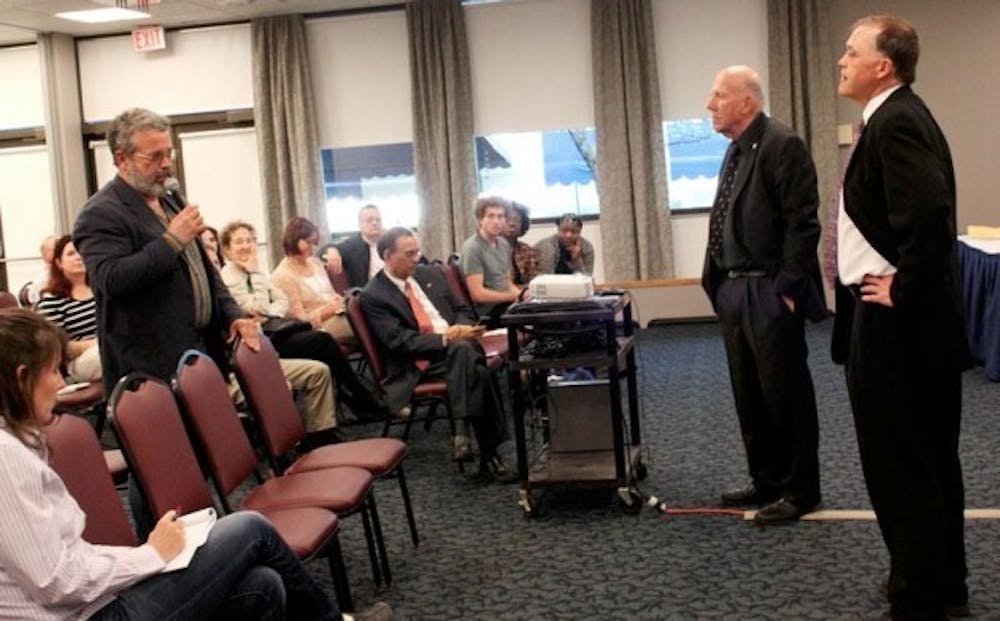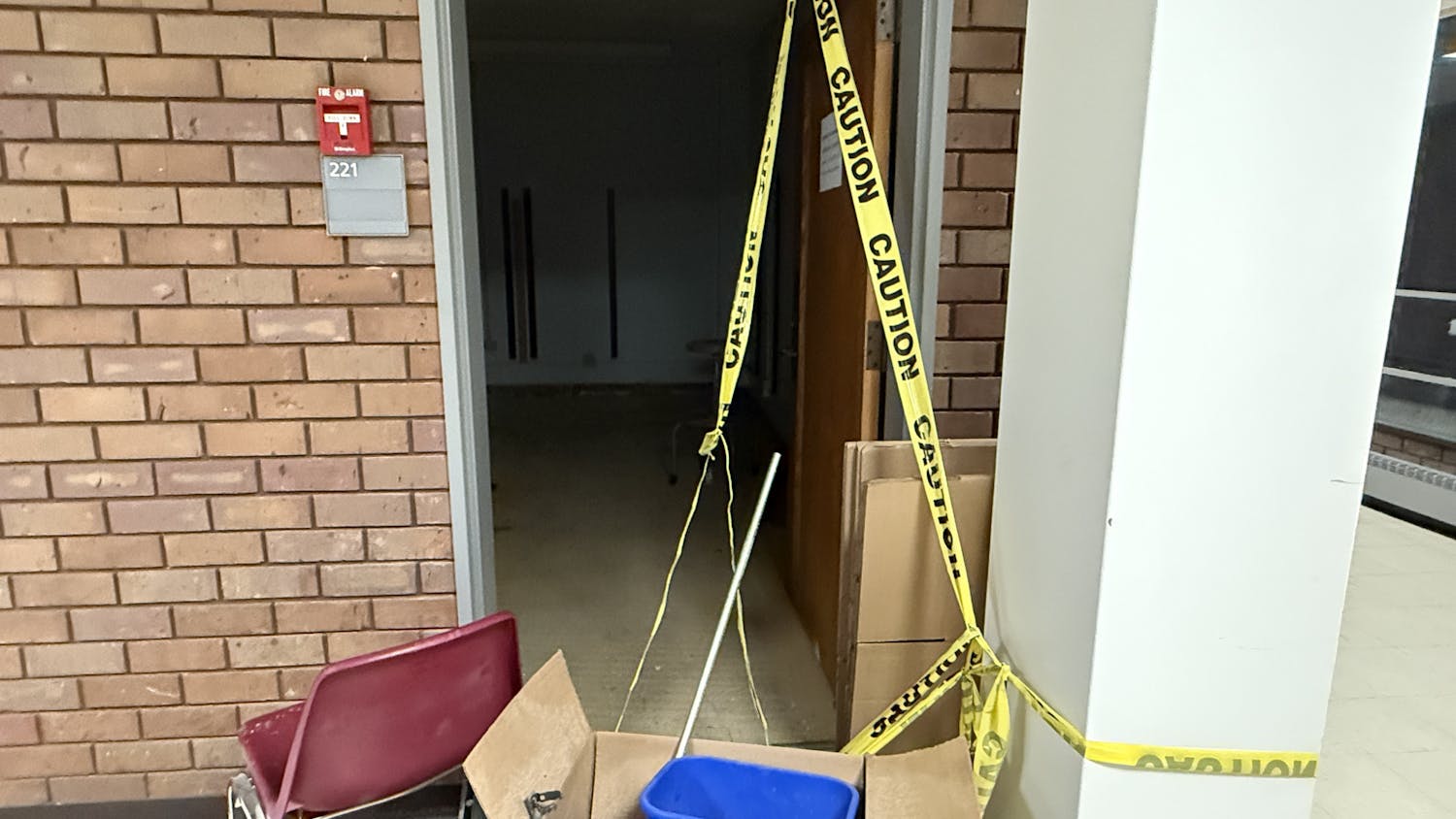Tuesday afternoon marked the first time that Edward Schneider, director of the UB Foundation (UBF), addressed the university's Faculty Senate. He has worked for UBF for 37 years.
Schneider - who had only previously spoken with the Senate's executive committee - held a Q&A session about UBF during Tuesday's Faculty Senate meeting in the Center for Tomorrow. It was the first Faculty Senate meeting of the fall semester.
UBF, the private organization that manages all donations given to UB, isn't subject to Freedom of Information requests and has been previously questioned by some faculty and community members who think the organization should be more transparent.
Schneider said UBF's "size" is "close to $1 billion," and it had $10 million when Schneider first started his UBF employment.
Last year, UBF administered about $150-200 million of donated revenue; the organization has about $700 million in investment assets, which includes about $554 million in UB endowments and about $140 million in a real estate portfolio, Schneider estimated.
Although the UBF "open discussion" was listed as the main topic on the Senate's agenda, a vocal crowd brought up concerns about the university and Senate before Schneider took the floor.
It wasn't Senate members who necessarily led the afternoon's discussion.
The Faculty Senate, which is the elected representation of the voting faculty at UB, wasn't in quorum on Tuesday. They haven't had a quorum - meaning 50 percent plus one of the Senate members are present - for years. This leaves decisions that require a vote to be decided by the Senate's executive committee rather than the Senate's body, which has between 95 and 100 members.
James Holston, an English professor, suggested there hasn't been quorum - as far as he could tell from reviewing meeting minutes - since Oct 9, 2007.
Holstun, who was elected as a new Senator in the spring, resigned in August, said Faculty Senate Chair Ezra Zubrow.
Holstun asked Zubrow whether the executive committee felt not having a quorum was a "good thing or a bad thing."
"And if it's a bad thing," Holstun posed to Zubrow, "what actions do you plan to take to remedy this, so that we can have an actual Senate again rather than a place for coffee and cookies?"
"It is in no way a desire" of the executive committee to not have a quorum, Zubrow said. He suggested Holstun be the one to go around and implore Senators to attend meetings - a request he said later in the meeting was a mistake, and apologized to Holstun for asking him to be a "policeman."
"We would like to have a Faculty Senate - to have a quorum - it's an unfortunate characteristic of the University at Buffalo faculty, that they are disengaged," Zubrow said to the crowd.
Audience members outside the Senate are only allowed to speak in the meetings with permission from the chair. Zubrow permitted non-Senate attendees to speak for the bulk of the meeting. A UB undergraduate student was able to share his displeasure by asking Provost Charles Zukoski about UB 2020 and its effect on Buffalo neighborhoods.
During Schneider's portion of the meeting, he said he believes the Medical Campus wouldn't be going downtown "without the benefit of the UB Foundation."
Zubrow said he wanted to promote "open discourse" throughout the meeting and he granted outsiders permission to speak until a Senate member requested only senators speak as it neared the end of the 1.5-hour meeting.
In an interview following the meeting, Zubrow said he brought Schneider to have a discussion with the group because he thinks UBF is an important part of "UB's financial picture."
"I look at UB with two pieces," Schneider said to the crowd. "The private side is where the UB Foundation sits. We help administer all the private support that [faculty] bring to the table."
Schneider spent just over 30 minutes fielding questions regarding UBF and explaining how the Foundation keeps donated funds separate from public funds and that most donations come with restrictions - like what school within the university the donations must go to, or if the funds are designated for scholarships. The university controls how the unrestricted money is used, Schneider said.
Questions persisted concerning UBF's varying nuances. Zubrow said the finances of a major university are complicated and difficult to understand.
"The more open discussion we can have about how it works, the better off this university will be," Zubrow added after the meeting ended.
email: news@ubspectrum.com





